Suzanne Lazaroo
2 August 2021: Staff from across the University of Canberra turned their focus – and their pens – to creating a range of children’s books late last month, to help improve literacy among primary school-aged children in communities that don’t have easy access to books.
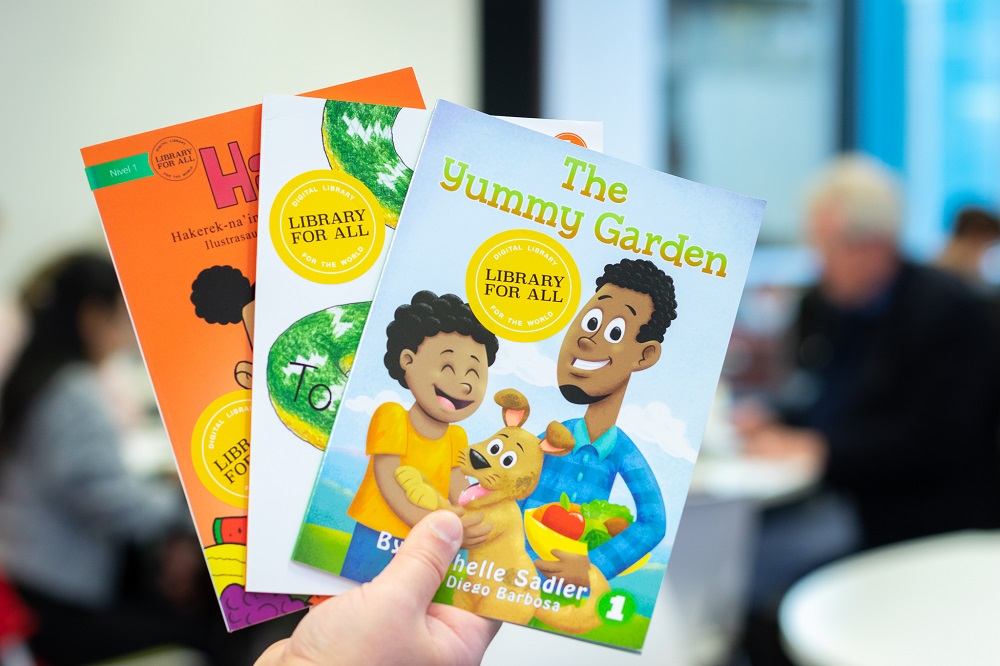
Academics and professional staff gathered at an intensive, one-day workshop organised by the Faculty of Education’s Associate Professor Dr Kym Simoncini and run by Library for All (LFA).
LFA is a not-for-profit that aims to make knowledge accessible for everyone, by creating a diverse, inclusive and culturally relevant digital and print library for children around the world.
It supports over 412,000 children in 18 countries including Papua New Guinea (PNG), Timor-Leste, Laos and the Solomon Islands, and last year, LFA merged with Save the Children Australia.
Dr Simoncini has been involved in extensive, ongoing research work in PNG, and collaborated with LFA on the first workshop at the University of Canberra in 2018.
The then-goal was to produce 500 books for early readers in PNG – a number reached at the end of 2020. These were either printed or compiled into Spark digital classroom kits, comprising tablets pre-loaded with the digital library.
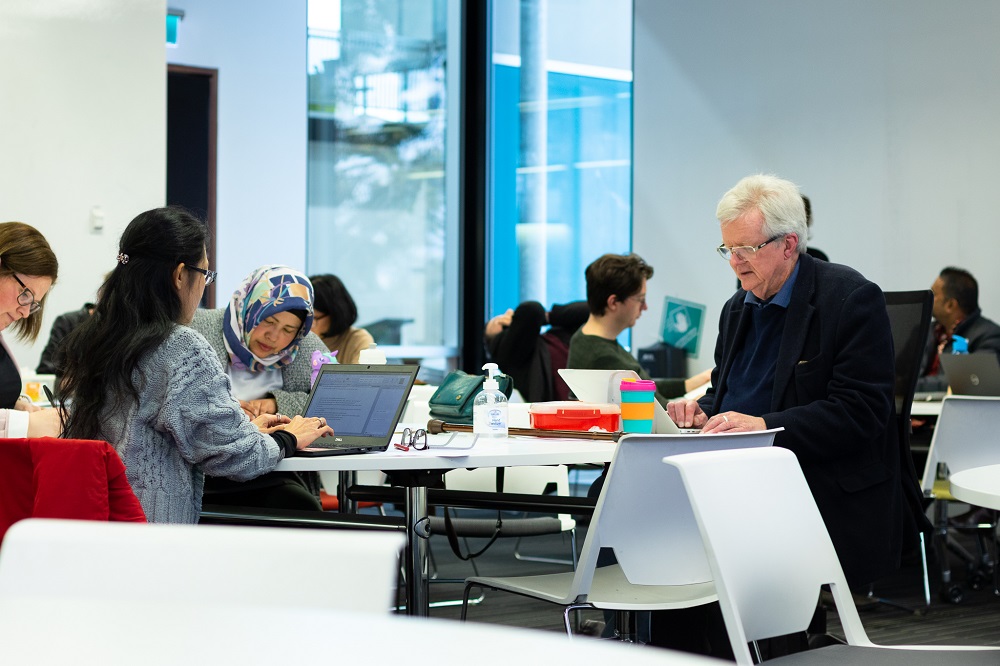
Dr Simoncini – a former primary school teacher – says that schools in PNG which received LFA’s literacy interventions showed statistically significant improvement in literacy levels – although greater improvement was needed to meet elementary English standards.
“The 12 schools which had the Spark digital classroom sets – and therefore had access to all the books in the library – outperformed all the other schools,” she said.
At the workshop last week, 25 participants were guided by Dr Lara Cain Gray, Specialist Librarian with LFA. This time, the overall project goal is to produce 200 books for children in the Solomon Islands.
Participants submitted over 42 different stories at the workshop itself – all those selected for books will be edited and illustrated, before being shipped off to their forever homes. Others will be kept in the LFA digital vault, and potentially turned into the books of the future.
“A few more people have promised to email theirs through to me, so we are expecting about 50 in total – which is a really great result from any workshop,” Dr Cain Gray said.
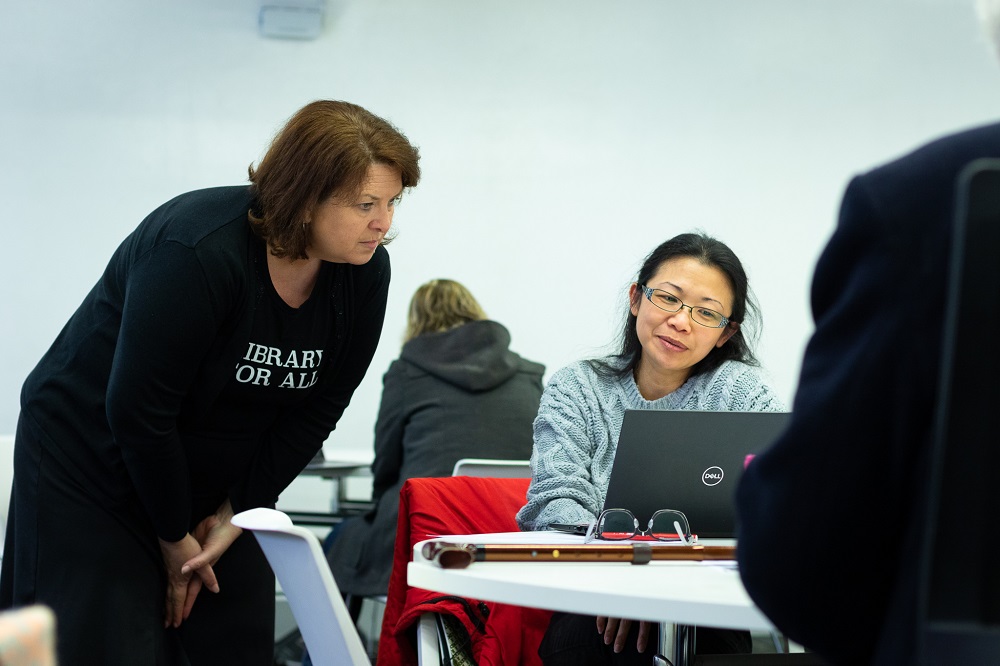
The participants were asked to write non-fiction.
“A good library comprises both fiction and non-fiction books,” Dr Simoncini said. “LFA runs workshops within the communities they serve, as well as with partners like the University of Canberra, and the community workshops often produce narrative-driven fiction books.
“With the expertise and knowledge available across UC, our workshops are great opportunities to bolster LFA’s non-fiction book collection.”
Community writing workshops – held in PNG since 2017, they went virtual when the COVID-19 pandemic slammed borders shut – also tend to produce ‘mirror’ books, that reflect one’s own culture and build identity.
A ‘window’ story allows you to see into someone else’s life – and this is generally the kind that offshore writing workshops, like the one at the University, will produce.
As workshop participants delved into the intricacies of writing children’s books, Dr Cain Gray provided advice on how to choose a topic that would result in an accessible ‘window’ book.
“One suggestion would be to look for a universal theme, like ‘family’, ‘friends’ or ‘emotions’,” she said.
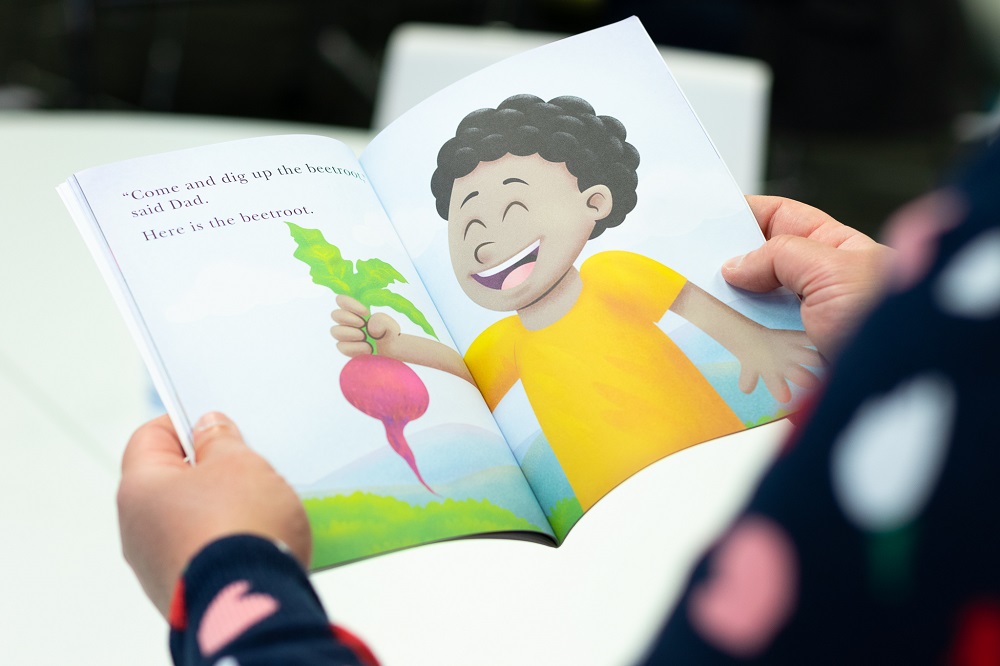
Dr Simoncini agrees about the importance of choosing relatable subjects.
“Culturally relevant materials help you to read, which is why they are so important to early readers,” she said.
“When I visited classrooms in PNG, I’d see donated books that were about things like catching a train to go and see Grandma – how would that be relevant to a child living in a village in the PNG highlands?” Dr Simoncini said.
“When you’re reading about things that are familiar, you can fill in a lot of the gaps. But when you don’t have that background knowledge – and you are learning to read – then it’s a lot harder, slower going.”
The books created at the latest workshop were written on topics both diverse and relatable.
“We received some animal management stories – which are very relevant to the environment – excellent guidance around a child’s first visit to the hospital, mental health-focused books, books on bees and how important they are to the environment, books focused on exercise and sport – to name just a few,” Dr Cain Gray said.
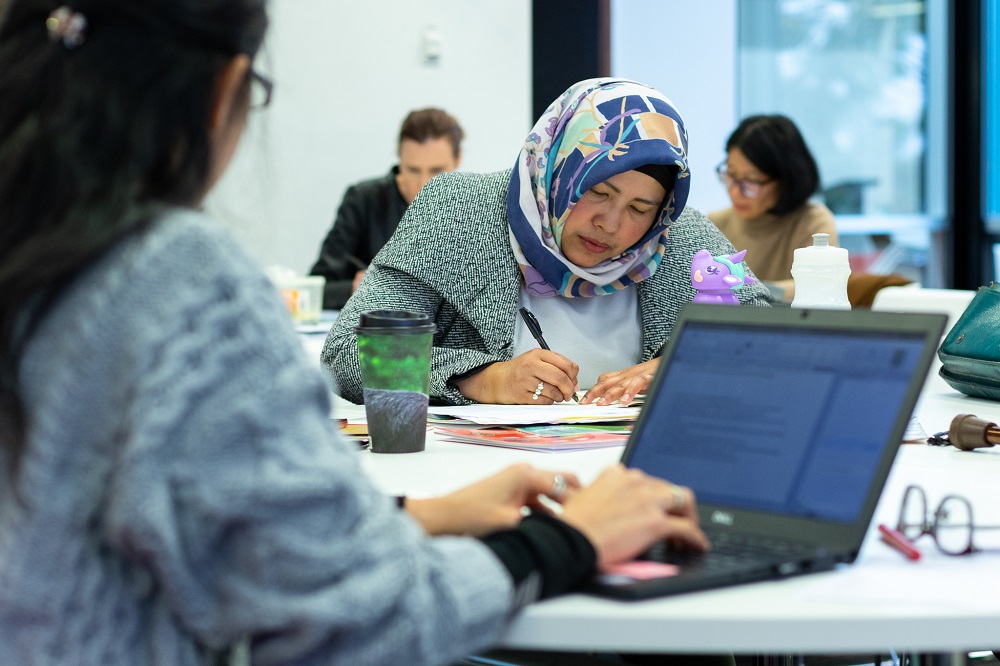
Dr Simoncini submitted two herself – Girls Belong Everywhere, and a book on getting vaccinated.
“I find that girls often don’t feel confident, or like they belong, in traditionally male-dominated fields,” she said. “So I decided to write a simple book about belonging, and how girls belong in the courts, or in science or in the home – wherever they choose to be, really.”
Dr Simoncini and Dr Cain Gray believe that the literacy interventions, and the writing workshops that fuel them, ultimately make a huge difference in raising literacy rates in the communities they work with.
“The next step in our collaboration now is to evaluate the impacts of the printed books and the Spark kit, and see if they are different,” Dr Simoncini said.
The collaborators also hope that the writing workshops at the University of Canberra continue to be held annually.
“It’s such a great, valuable project and it allows us as academics and researchers to disseminate knowledge in new ways, beyond just traditional journal articles,” Dr Simoncini said. “Plus, I know so many people who have always dreamed of writing a children’s book!”


